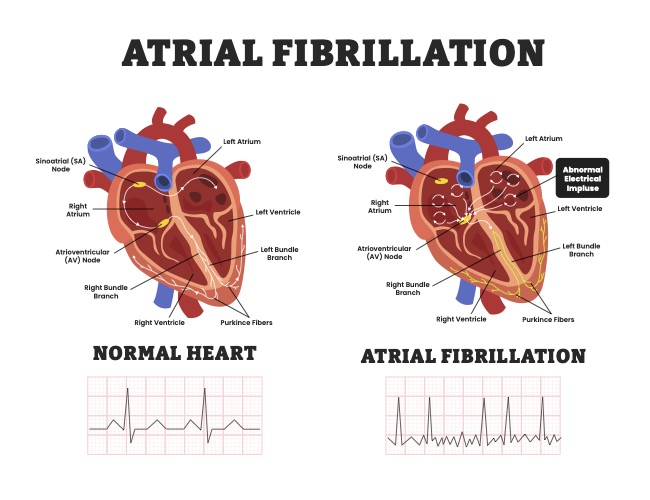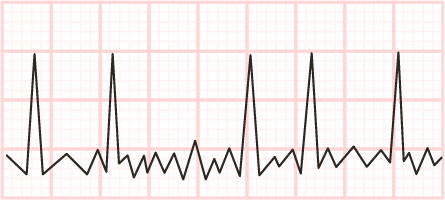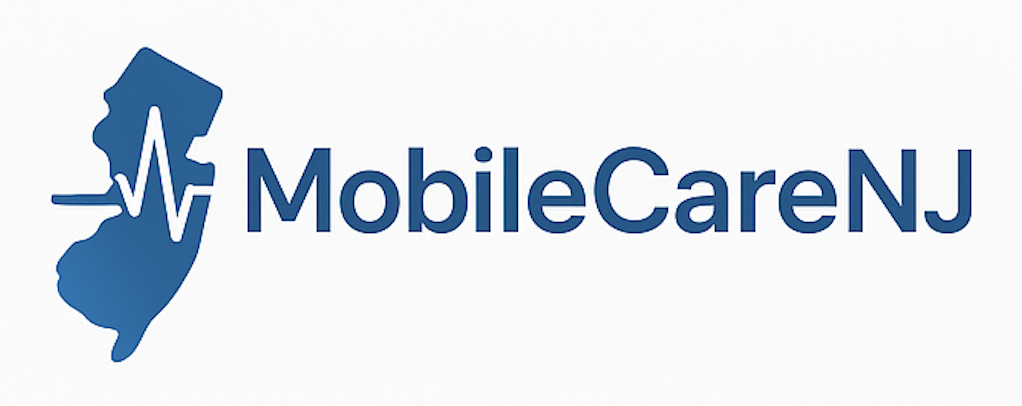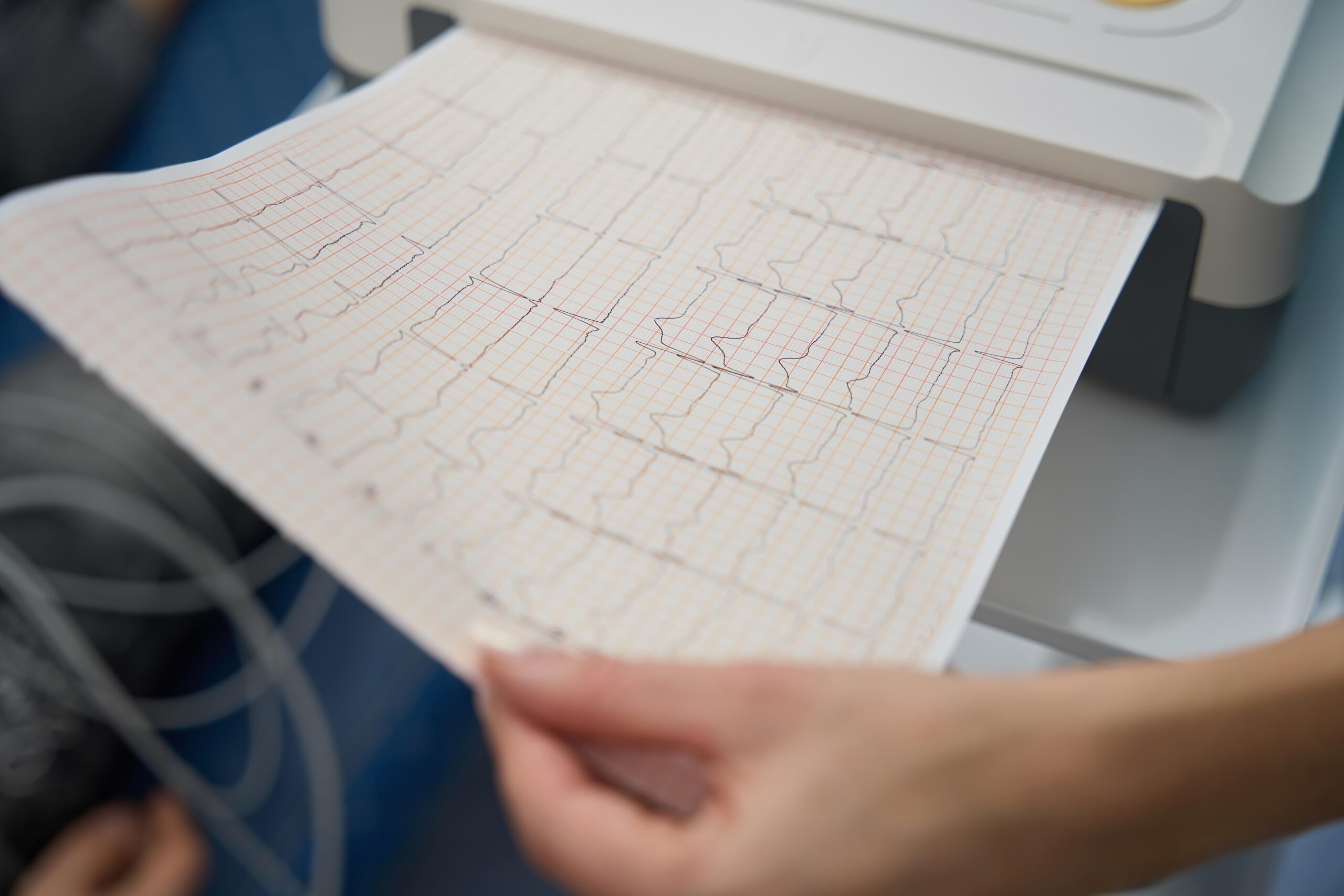Atrial fibrillation (AFib) is the most common type of irregular heartbeat (arrhythmia). It happens when the heart’s upper chambers (atria) beat out of sync with the lower chambers, leading to an irregular and often rapid pulse. AFib can come and go, or it can be persistent.
While some people feel no symptoms, AFib can increase the risk of stroke, heart failure, and other heart problems — making early detection and treatment essential.

Common Symptoms of AFib
- Heart palpitations (fluttering, pounding, or racing heartbeat)
- Fatigue or weakness
- Shortness of breath
- Dizziness or lightheadedness
- Chest discomfort
Some people have “silent” AFib with no obvious symptoms, discovered only during a check-up or ECG.
Why AFib Matters
AFib causes the heart to beat inefficiently, which can lead to blood pooling and clot formation. If a clot travels to the brain, it can cause a stroke. AFib increases stroke risk by about five times.
Management Tips for AFib
- Follow Your Treatment Plan – Medications may include blood thinners, heart rate control, or rhythm control drugs.
- Monitor Your Heart Rate and Rhythm – Regular checks help track changes.
- Manage Risk Factors – Control high blood pressure, diabetes, and sleep apnea.
- Limit Alcohol and Caffeine – These can trigger episodes in some people.
- Stay Active – Gentle, consistent exercise supports heart health.
How Mobile Care NJ Helps Manage AFib
AFib requires ongoing monitoring to prevent complications. With Mobile Care NJ’s at-home check-ups, you benefit from:
- Regular Heart Monitoring: Tracking pulse, blood pressure, and symptoms.
- Medication Management: Ensuring blood thinners and other treatments are taken safely.
- Early Detection of Changes: Addressing new or worsening symptoms quickly.
- Stroke Prevention Support: Helping you stay on track with preventive care.
When to Seek Emergency Care
Call 911 if you have chest pain, severe shortness of breath, fainting, or symptoms of a stroke (face drooping, arm weakness, speech changes).
Bottom line: AFib may not always feel urgent, but it’s a serious condition that needs consistent care. With Mobile Care NJ’s in-home visits, you get personalized monitoring and treatment to lower your stroke risk and keep your heart rhythm in check.


